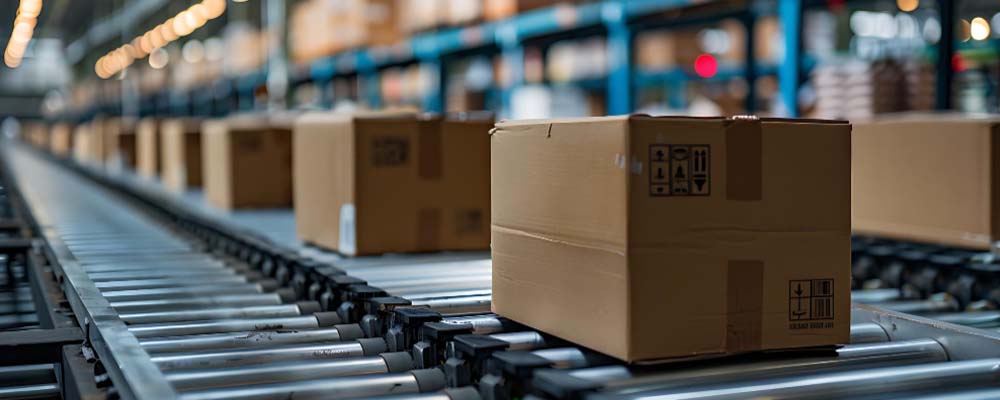
Portugal is a strategic gateway to the European Union and a rising hub for trade, making it an attractive destination for exporters worldwide. With a robust infrastructure, a stable economy, and access to European markets, Portugal offers significant opportunities for companies looking to expand their global reach. Whether you’re a freight forwarder, a logistics provider, an importer, an exporter, or involved in e-commerce, this guide will cover everything you need to know about exporting to Portugal.
Introduction to the Portuguese Market
Portugal, with its population of over 10 million, is part of the EU and enjoys favorable trade agreements with various countries, creating a broad network for international trade. The country’s strategic location along the Atlantic Coast provides natural access to Europe, Africa, and the Americas, enabling exporters to connect with these regions easily. Portugal’s developed economy, ranked as the 46th largest in the world by the IMF, is further strengthened by its access to EU resources and markets.
Portuguese consumers value quality, with growing interest in international brands and sustainable products, particularly in urban areas such as Lisbon and Porto.
Key Economic Sectors and Major Imports
Understanding Portugal’s primary economic sectors and what goods the country imports can help exporters identify market demands.
Primary Sectors:
- Tourism and Hospitality: As one of the world’s top tourist destinations, Portugal has a thriving tourism industry.
- Agriculture and Wine: Known for high-quality wines, olive oil, and seafood, Portugal’s agriculture sector has a strong global reputation.
- Manufacturing and Textiles: Portuguese textiles, footwear, and ceramics are well-regarded and serve both local and international markets.
- Renewable Energy: Portugal leads Europe in renewable energy projects, making it an attractive market for sustainable solutions.
Major Imports:
- Machinery and Equipment
- Vehicles and Parts
- Chemicals and Pharmaceuticals
- Fuels and Oils
- Agricultural Products
Benefits of Exporting to Portugal
Exporting to Portugal provides a range of benefits, particularly due to its EU membership and favorable business environment.
- EU Market Access: As an EU member, Portugal allows duty-free access to other EU countries once goods clear customs, making it easier for exporters to distribute products across Europe.
- Infrastructure: Portugal has modernized its ports, airports, and roads, supporting efficient trade and logistics.
- Business-Friendly Environment: The government has introduced policies and incentives to attract foreign investment and boost exports.
- Language Advantage: Portuguese is one of the world’s most widely spoken languages, opening opportunities to Portuguese-speaking countries in Africa and South America.
 Regulatory Requirements and Customs Procedures
Regulatory Requirements and Customs Procedures
Exporters to Portugal must follow EU and local regulations. Here’s a closer look at customs and regulatory requirements:
- Harmonized Tariff Schedule (HTS): Goods entering Portugal are subject to EU harmonized tariffs. Be sure to classify goods correctly under the HTS to avoid delays.
- CE Marking: Most goods, particularly electronics and machinery, require CE marking to indicate compliance with EU health, safety, and environmental standards.
- Labeling and Packaging Requirements: Labels should comply with EU and Portuguese regulations, including product information, ingredients, and safety instructions (if applicable).
- Import Licenses: Certain items, such as pharmaceuticals and agricultural products, may need special permits or import licenses.
Tariffs, Taxes, and Documentation
Exporters must prepare for tariffs, taxes, and proper documentation when shipping to Portugal.
- Value-Added Tax (VAT): Portugal applies a standard VAT of 23% on goods sold domestically. Exporters should understand VAT refund options and procedures for items shipped to Portugal.
- Documentation: Essential documents include:
- Commercial Invoice
- Packing List
- Bill of Lading or Airway Bill
- Certificate of Origin
- Import License (for restricted goods)
- Insurance Certificate
Failing to provide accurate documents may result in customs delays, so it’s crucial to ensure compliance.
Logistics and Transportation Options
Portugal’s robust logistics infrastructure supports multiple transportation options. Understanding the best routes and logistics providers can help streamline your exports.
- Ports: Major ports, such as Porto de Sines and Porto de Lisboa, handle the bulk of cargo. They connect Portugal to the Mediterranean, Europe, Africa, and the Americas, offering deep-water berths suitable for large vessels.
- Airports: Lisbon, Porto, and Faro airports provide fast shipping options, though air freight is more suitable for high-value, time-sensitive goods due to cost.
- Rail and Road Networks: Portugal’s rail and road systems are well-developed, enabling effective transport within the Iberian Peninsula and to nearby European countries.
Collaborating with reliable freight forwarders and customs brokers can significantly enhance the efficiency of your shipping operations.
Cultural Considerations and Business Etiquette
Understanding Portuguese business culture can help build positive relationships and make a good impression on potential clients and partners.
- Language: While Portuguese is the official language, many professionals in business settings speak English.
- Building Relationships: The Portuguese prefer face-to-face meetings, so it’s beneficial to invest time in building rapport with local partners.
- Punctuality: Timeliness is important, though meetings can sometimes start slightly behind schedule. Patience is appreciated in Portuguese culture.
- Formality: Initial business meetings are generally formal, and it’s customary to address people by their titles until invited to use first names.
Adapting to Portuguese business customs can foster trust and respect, crucial for long-term success.
 Market Entry Strategies for Exporters
Market Entry Strategies for Exporters
Exporters have several strategies to consider when entering the Portuguese market:
- Direct Exporting: Selling directly to distributors or consumers in Portugal offers control but requires a solid understanding of local regulations and logistics.
- Using a Distributor: Partnering with a local distributor can simplify market entry by leveraging their existing networks and understanding of the market.
- Joint Ventures: Forming a joint venture with a Portuguese company can help navigate regulatory hurdles and gain local market insights.
- E-commerce: Portugal has a growing e-commerce sector, making it feasible for exporters to sell directly to consumers online.
Each strategy has its pros and cons, so it’s essential to evaluate based on product type, target audience, and resources.
Partnering with Local Businesses
Collaborating with Portuguese companies can ease your entry into the market. Consider these partnerships:
- Freight Forwarders and Customs Brokers: Working with local logistics experts ensures compliance with Portuguese customs regulations and helps navigate the import process.
- Distributors and Retailers: Finding a distributor familiar with the local market can improve your chances of success.
- Professional Associations: Portugal’s various trade associations, such as the Portuguese Association of Distribution Companies (APED), offer insights and networking opportunities.
Building a strong network of local partners can help navigate the Portuguese market and expand your reach.
 Conclusion
Conclusion
The doors of opportunity are wide open in Portugal. Whether you’re a seasoned exporter or just beginning your journey into international trade, the Portuguese market offers immense potential for growth across sectors. With its strategic location and access to the European Union, Portugal can be your gateway to a wider global presence, connecting you seamlessly with European markets and beyond.
Exporting to Portugal requires a thoughtful approach, including understanding the regulatory landscape, choosing suitable logistics options, and respecting Portuguese business culture. By carefully planning and securing the right partnerships, you can unlock the full potential of this promising market and build lasting connections in Portugal.
Feeling overwhelmed by the intricacies of exporting? With the right support, exporting to Portugal can open doors to the broader European market, elevating your company’s global presence.
Visit PANGEA website to learn more about how we can support your expansion into Portugal and beyond.




 Regulatory Requirements and Customs Procedures
Regulatory Requirements and Customs Procedures Market Entry Strategies for Exporters
Market Entry Strategies for Exporters Conclusion
Conclusion



